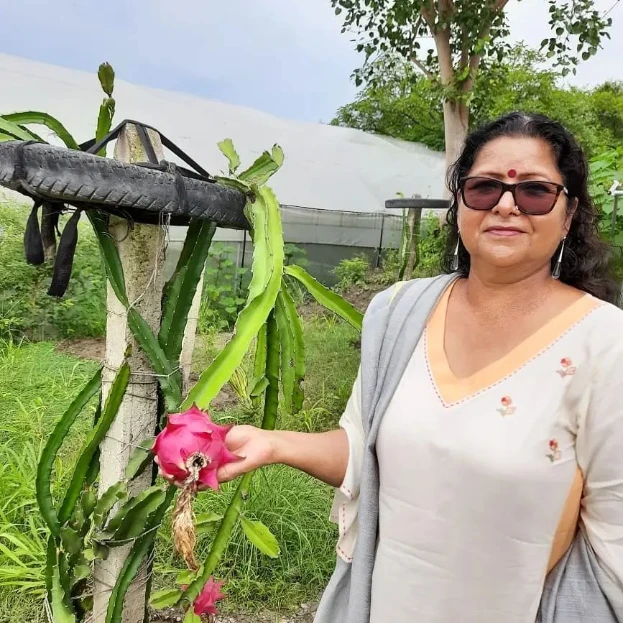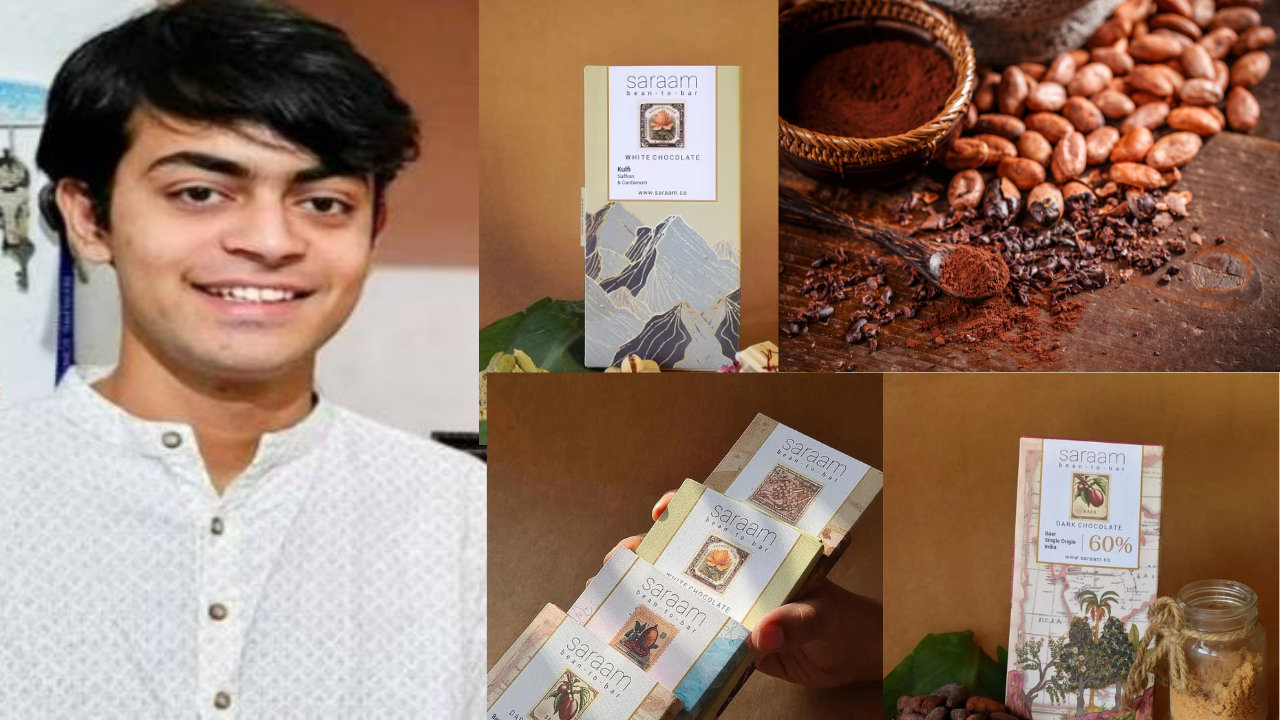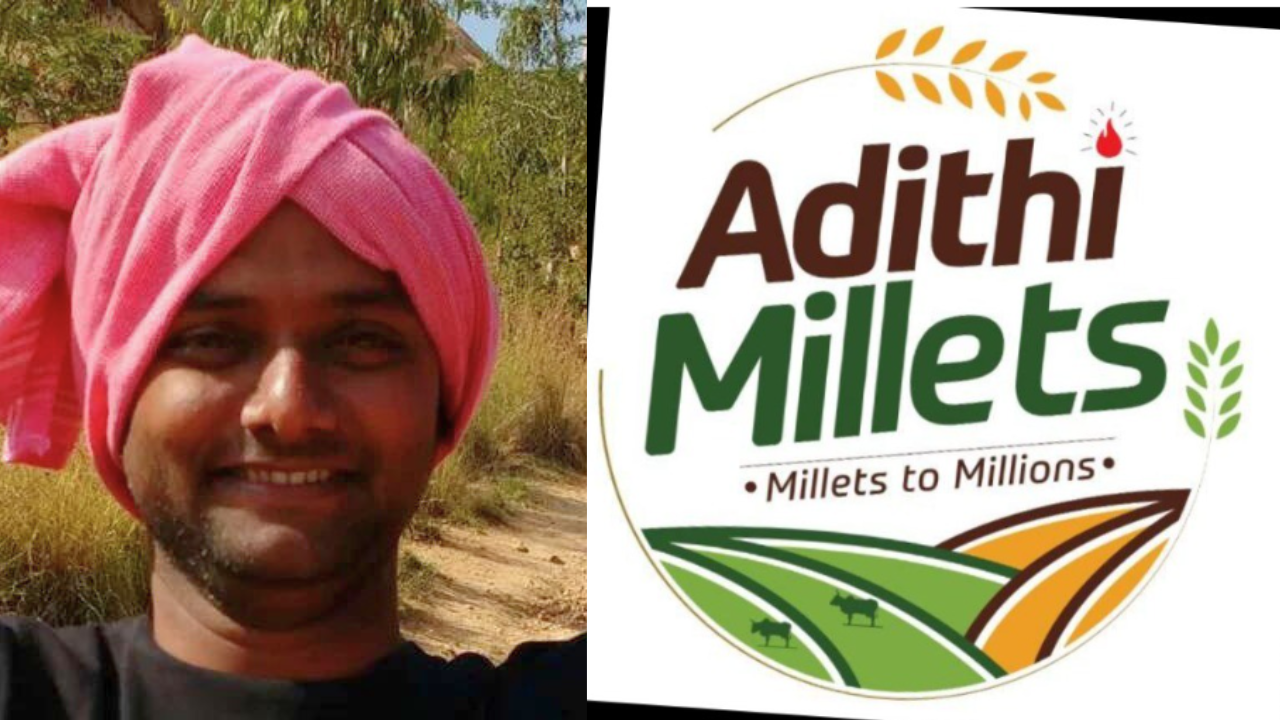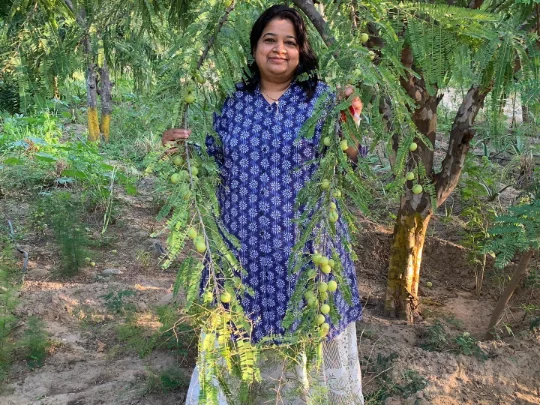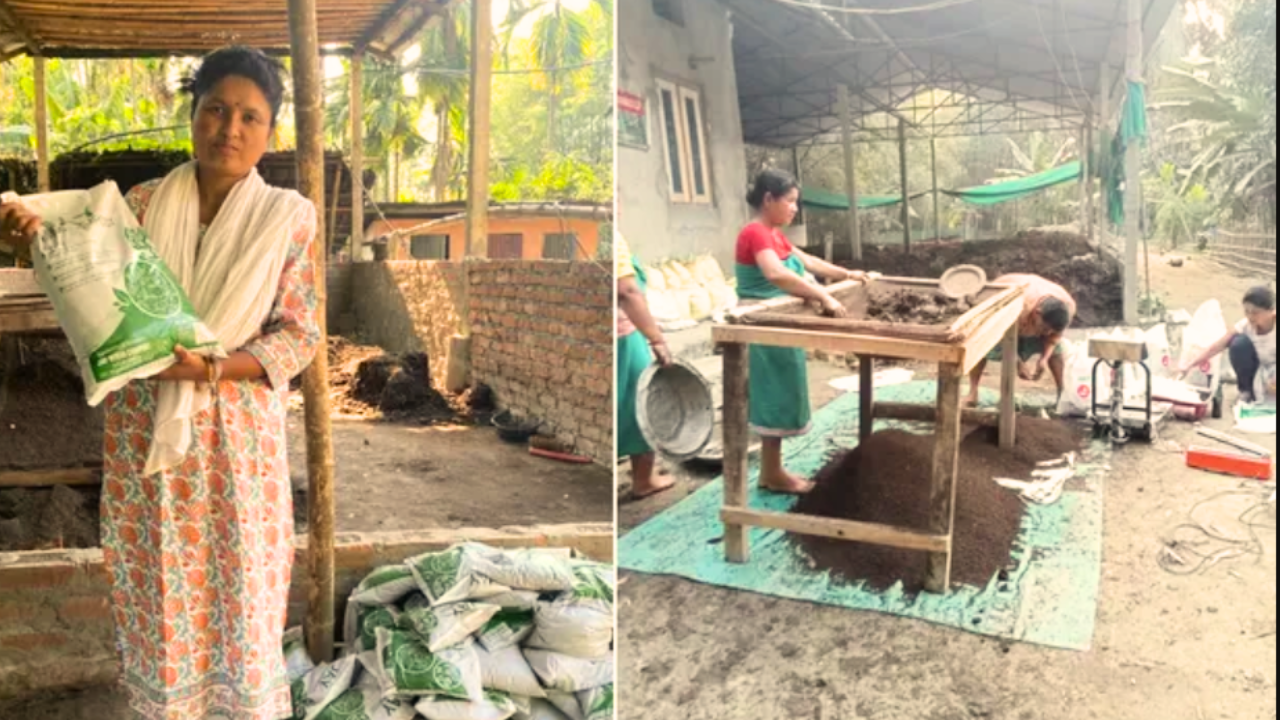Reeva and Rajeev Sood had their lives shaken up in 2012 when Rajeev was diagnosed with cancer while living their usual life in Delhi.
This unfortunate news made them rethink their eating habits. They came to understand that the vegetables they were consuming might contain harmful chemicals linked to deadly diseases.
This awareness motivated them to start a beautiful organic Medicinal Plant farm in Himachal’s Una district. They also established Him2Hum, a farmers’ producer company where numerous women play key roles in farming activities.
Reeva, who had spent three decades working in the development sector, reflects, “[Rajeev’s cancer] marked a significant turning point in our perspective.”
Turning desolate terrain into a lush green paradise
Six years ago, Reeva faced 30 acres of barren land with a promise to herself: one day, it would not only flourish with lush greenery but also empower the village women with newfound self-confidence.
Over the years, this land transformed. It blossomed with shatavari (asparagus), sarpagandha (snakeroot), ashwagandha (Indian ginseng), tulsi (holy basil), stevia, harsingaar (night jasmine), aloe vera, vetiver grass, lemon grass, and more. By 2019, it had become unrecognizable from its previous desolate state, now boasting 17 different crops.
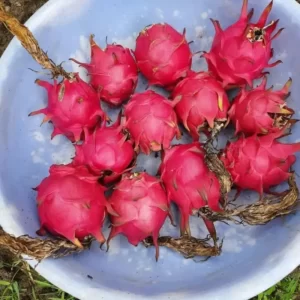
Reeva took a bold step by introducing two unconventional crops: black wheat and dragon fruit. She saw their potential and believed in them. “We wanted to introduce black wheat as a healthier alternative to regular wheat,” she explains, highlighting its superfood qualities.
As for dragon fruit, its resilience captured her attention. “I knew if I was going to take a chance on a crop, I had to choose one that could thrive in the hot and sometimes drought-like conditions.”
Local farmers also embraced dragon fruit cultivation, albeit for different reasons. Shammi, a farmer, explains that it serves as a natural deterrent to crop-damaging monkeys due to its thorny appearance. Moreover, participating in this farming venture has been a unique and profitable experience for them. Shammi enthusiastically shares, “It has benefited us greatly. This fruit is new to us, and at first, we were hesitant. However, we realized it was selling for Rs 80, and we saw good profits.”
The farm’s success is reflected in the number of orders it receives. For instance, during its peak season, Sarpagandha receives approximately 900 orders.
At this organic farm, the use of chemicals is strictly prohibited. Instead, they rely on organic alternatives such as cow urine, cow dung, panchgavya, neem spray, and lassi—ingredients readily available locally but previously considered ‘worthless’—to enrich the soil.
Reeva explains that while in theory, it took her six years to transform the land, the practical journey was quite different. “My understanding of farmers was largely shaped by what I had seen in movies,” she admits.
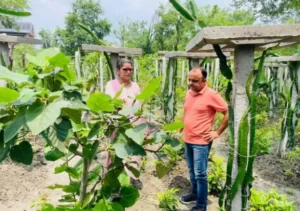
Being from Delhi, she had never fully grasped the true challenges of farming. Some days, she toiled in scorching 40-degree heat, but she remained steadfast.
Over time, the organic farm thrived, and Reeva was joined by ten farmers who now tend to the land. They have become full-time residents and workers on the farm, allowing her to commute between her home in Delhi and the farm in Himachal.
Shammi attests to the benefits, saying, “We’ve gained more than just profits. We’ve learned to cultivate and grow many plants we would have never tried if someone hadn’t supported us.”
However, Reeva acknowledges that convincing farmers to embrace chemical-free farming was a challenge. They were initially skeptical because they traditionally relied heavily on chemicals to boost farm productivity. But once they witnessed the positive results, there was no turning back.
As farming operations gained momentum, Reeva envisioned commercializing the venture and involving women in its core operations. Consequently, in 2016, she established Him2Hum, a women farmer producer company.
The goal of this venture was straightforward: train village women in the cultivation, growth, production, processing, harvesting, and trading of agricultural produce and medicinal herbs. It would also handle the import, export, marketing, and distribution of these products.
“When you speak up, only then will the world change.”
“When you find your voice and speak out, that’s when the world starts to change,” was the powerful message Reeva wanted to instill in the women of Una. When she first arrived, she noticed that even though these women were skilled in making butter and tending to farms, they lacked the confidence to formally take charge of projects or tasks.
Instead of allowing this sense of defeat to persist, Reeva aimed to introduce a culture of equality. She wanted to ensure that women had PAN cards and the right to sign documents.
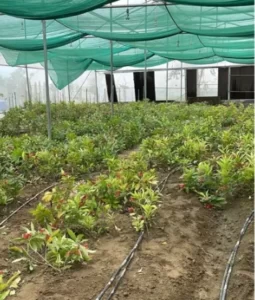
Currently, 230 women are part of Him2Hum. One member, Sulochna, expresses how being part of this initiative has made her feel more self-reliant than ever. She works in the fields, contributes to organic crop cultivation, and is excited about the diverse range of produce, including onions, garlic, and unfamiliar fruits, that they are now growing. She proudly states, “I can say I am now working and have developed valuable skills.”
Today, Una is witnessing a revival of traditional farming and natural resource management techniques that directly benefit the local community. Simultaneously, the women of Una are evolving. They receive training, support, and education on financial independence. They are becoming aware of government programs, and Reeva has advocated for tehsils to make it mandatory for women to have their names included in the Kissan Book.
Sulochna, like many other women, is part of this transformative movement. This way, she will have an equal share in land ownership and its benefits.
A shifted perspective.
In addition to her organic farming approach, Reeva has taken steps to change people’s attitudes towards waste. When she first arrived in Una, she was shocked to learn that elderly cows or male calves that had no practical use were often sent to the slaughterhouse because villagers couldn’t afford to feed them.
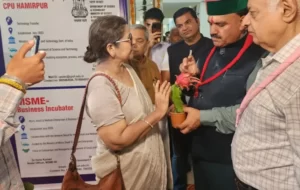
After some contemplation, Reeva had a shed built on the farmland and invited villagers to bring their non-productive cows to her. She then used the cow dung from these animals for a vermicompost pit on the land. She says, “This became an example that even when something is abandoned, it can be valuable if used wisely.”
In addition to this, Reeva encourages villagers to deposit their waste, like peels and lassi, into a pit she created on the land. This material becomes jeevamrut, which enhances soil fertility.
While the villagers are adapting to modern practices, Him2Hum, supported by organizations like the National Level Bank for Farmers, Rural Development Programs, and NABARD, has a growing list of clients, including government authorities and private companies.
Reeva explains, “Our products are purchased by government bodies like Panchayat Behar Jaswa, Amb, Una H P C/O DRDA MGNREGA, and pharmaceutical companies such as Swati Spentose Pvt Ltd, Ketavs Ayush Health Care Products, & Biosphere Clinical.” She acknowledges this progress but emphasizes that the ultimate goal is to empower women farmers to understand the intricacies of running a global business.
She passionately states, “The day one of the women can confidently stand in front of a buyer at the major marketplace and engage in business discussions independently, that, to me, is a better India.”
Follow Reeva here

